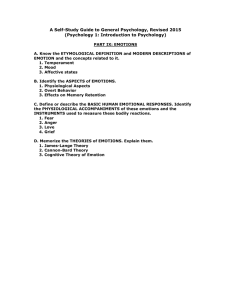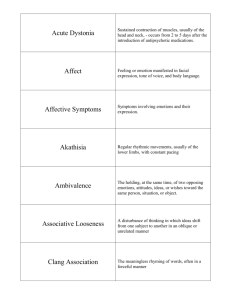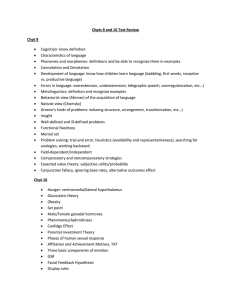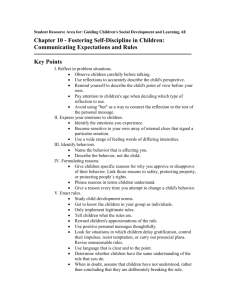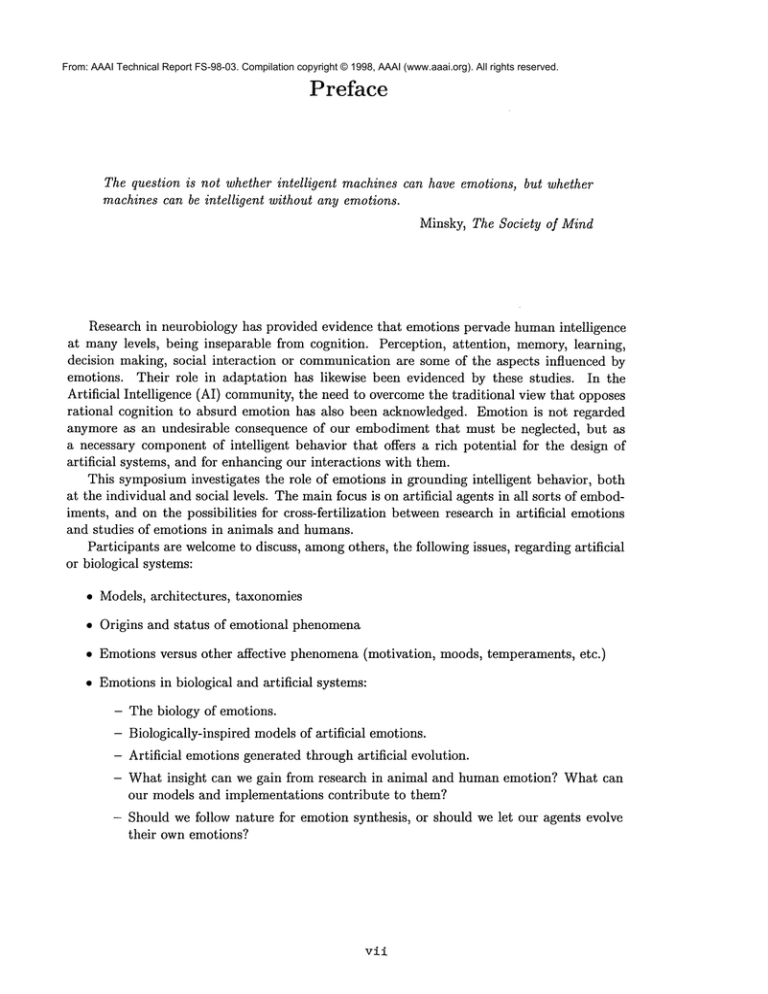
From: AAAI Technical Report FS-98-03. Compilation copyright © 1998, AAAI (www.aaai.org). All rights reserved.
Preface
The question is not whether intelligent machines can have emotions, but whether
machines can be intelligent without any emotions.
Minsky, The Society of Mind
Research in neurobiology has provided evidence that emotions pervade humanintelligence
at many levels, being inseparable from cognition. Perception, attention, memory,learning,
decision making, social interaction or communication are some of the aspects influenced by
emotions. Their role in adaptation has likewise been evidenced by these studies. In the
Artificial Intelligence (AI) community,the need to overcomethe traditional view that opposes
rational cognition to absurd emotion has also been acknowledged. Emotion is not regarded
anymore as an undesirable consequence of our embodiment that must be neglected, but as
a necessary componentof intelligent behavior that offers a rich potential for the design of
artificial systems, and for enhancing our interactions with them.
This symposiuminvestigates the role of emotions in grounding intelligent behavior, both
at the individual and social levels. The main focus is on artificial agents in M1sorts of embodiments, and on the possibilities for cross-fertilization between research in artificial emotions
and studies of emotions in animals and humans.
Participants are welcometo discuss, amongothers, the following issues, regarding artificial
or biological systems:
¯ Models, architectures,
taxonomies
¯ Origins and status of emotional phenomena
¯ Emotions versus other affective
phenomena(motivation, moods, temperaments, etc.)
¯ Emotionsin biological and artificial
systems:
- The biology of emotions.
- Biologically-inspired modelsof artificial
emotions.
- Artificial emotions generated through artificial
evolution.
- What insight can we gain from research in animal and human emotion? What can
our models and implementations contribute to them?
- Should we follow nature for emotion synthesis, or should we let our agents evolve
their own emotions?
vii
¯ Embodimentaspects of emotion:
- Howdo emotional phenomena arise from/relate
to the body?
- Does any kind of embodimentseem to have a privileged status for the implementation of emotions in artificial agents? For what aspects?
¯ Emotionexpression, synthesis and recognition:
- Mechanismsfor emotional expression, perception, activation, etc.
- Howcan emotional states
be "measured"?
¯ Emotions and behavior:
- Adaptive value of emotional states.
- Emotions as a mechanismfor behavior control.
- Roles of emotions in social interaction.
¯ Emotions in cognition and learning:
- Influence of emotions in other aspects of (lower- and higher-level) cognition.
- Emotional learning.
- Learning of emotions.
- (How) Does the lack of emotions impair the cognitive abilities
tonomous agents?
¯ Emotions in social interaction
of artificial
au-
and communication:
- What do emotions communicate to others?
- Modulation of communication by emotions.
- Expression and description of emotions in natural and artificial
languages.
- Emotional expression and art.
¯ Design and implementation issues:
- Whatarchitectures are better suited for emotion synthesis?
- Whatkind of computational and representational
the complexity of emotional phenomena?
mechanisms are needed to capture
¯ Philosophy:
- Emotions in the philosophical tradition.
- Emotions and self-image.
- Epistemological issues.
- Ethical aspects.
¯ Applications: art, autonomous and believable agents, education, entertainment, interfaces, medicine, multi-agent systems, pets and personal robots, wearable computing, etc.
viii
Contributions from fields others than AI, artificial life, and robotics (e.g., arts, biology,
humanities, psychology, social sciences), are also strongly encouraged.
For further information, please visit the symposiumwebsite:
http://www.iiia.csic.es/~lola/ei-fs98
.html
Dolores Ca~amero
Barcelona, August 21, 1998
ix




